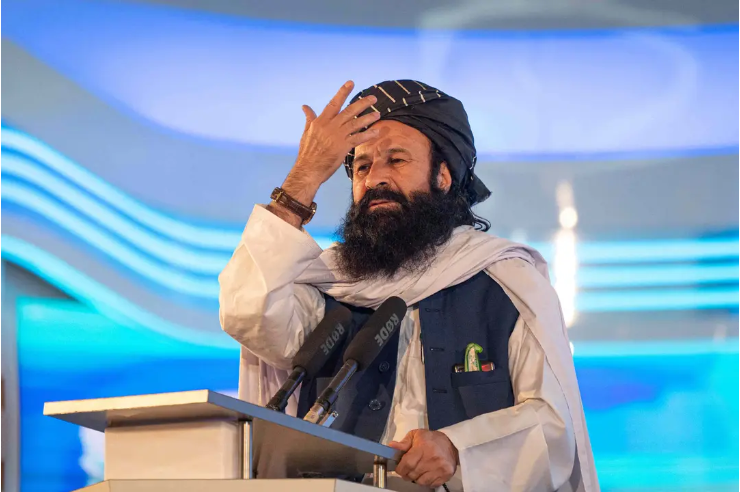Afghanistan: Cricketers Condemn Taliban Ban on Girls' Health Studies
The Taliban administration in Afghanistan on Tuesday reportedly implemented a new ban preventing women from receiving medical education and training, effectively closing their path to becoming doctors, nurses, or midwives. The Taliban has neither confirmed nor denied the ban....
Facts
- The Taliban administration in Afghanistan on Tuesday reportedly implemented a new ban preventing women from receiving medical education and training, effectively closing their path to becoming doctors, nurses, or midwives. The Taliban has neither confirmed nor denied the ban.[1][2]
- Two of the country's prominent cricket players, Rashid Khan and Mohammad Nabi, have publicly voiced their disapproval through social media posts, emphasizing that education is central to 'Islamic teachings' for both genders.[3][4]
- The medical education ban, which Nabi said comes at a time when the country 'desperately needs professionals' in the 'medical sector,' follows previous prohibitions on women receiving secondary education, university attendance, and sports participation.[1][4]
- Afghanistan currently faces an 'acute shortage' of female healthcare professionals, according to Rashid, which he claims 'directly impacts the healthcare and dignity of women.'[5][2]
- The UN has reported that approximately 1.4M school-age Afghan girls are being 'deliberately deprived' of the right to education, describing the Taliban's restrictions as 'gender apartheid.' The Taliban has previously cited other restrictions as aiming to help 'the promotion of virtue and the elimination of vice.'[6][7]
- Afghanistan, whose Taliban administration receives no international recognition, remains the only country globally that prevents girls and women from attending secondary schools and universities.[8][9]
Sources: [1]The Express Tribune, [2]Al Jazeera, [3]The Times of India, [4]ESPN.com, [5]India Today, [6]Voice of America, [7]Associated Press, [8]UNESCO and [9]The New Indian Express.
Narratives
- Narrative A, as provided by Afghanistan International. Concerns and criticism by the UN and many Western states are baseless and simply propaganda. Like everyone else, the rights of women and girls in Afghanistan are based upon Islamic law and will continue to be so. Moreover, education in Afghanistan is not as bad as Western-dominated international organizations make it out to be. Current international condemnation doesn't match the facts and the reality of life in the Islamic Emirate.
- Narrative B, as provided by Tolonews and RadioFreeEurope/RadioLiberty. Even from a religious perspective, this ban is contradictory and inhumane, as Islam universally emphasizes knowledge for all, as seen in dozens of Muslim nations. This ban is rooted in outdated cultural biases and fraudulent interpretations, lacks any justification, and undermines Afghanistan's societal and economic progress. The international community must continue to push for change, and the Taliban should heed these calls if it wants its country to flourish.
- Establishment-critical narrative, as provided by Middle East Eye. The US invasion of Afghanistan was never about helping Afghans or promoting women's rights — it was a guise for projecting military power, testing new weapons, and asserting dominance in Central Asia against rivals like China and Russia. Just as they did before the invasion, warmongering neocons are still exploiting issues like women's education to justify imperialist actions, leaving Afghanistan in ruin while enriching the arms industry.







